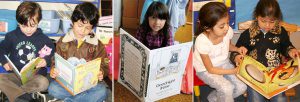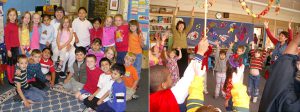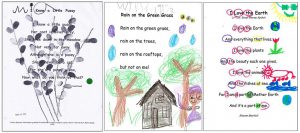The SMILE Approach to Accelerated Literacy
Principles and Practices That Celebrate Language and Honor Childhood
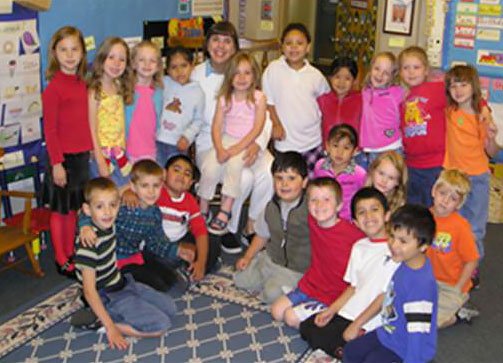
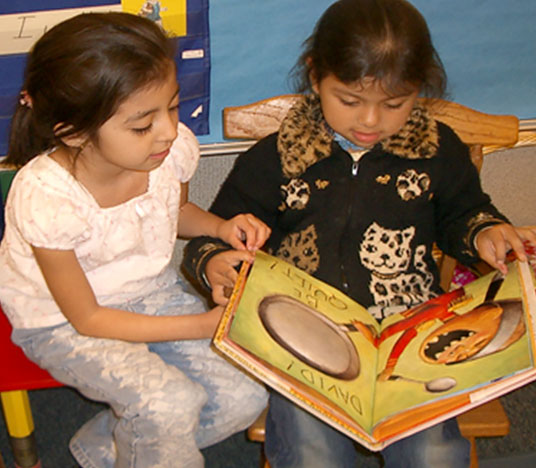
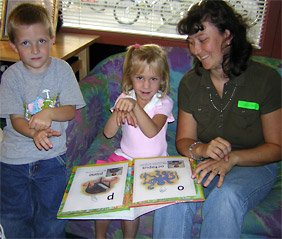
We know how to reach Common Core Standards in a CHILD’S GARDEN - kindergarten!
We create beautiful, organized, language-intensive environments that are emotionally safe and noncompetitive. We have high expectations. We weave the educational arts into all areas of curriculum. Our children develop friendships. They learn to make choices and are involved in meaningful projects. As educators we are reflective, continuously learning how to provide the scaffolding needed for every child to build on success, every day. We teach systematically and intuitively. We take advantage of how the brain learns best – and we save time for serendipity.
These 14 principles, within a loving, disciplined and joyful atmosphere, provide a foundation and framework for excellence:
- Bond with students and create a joyful community where children care and share and learn together. Our language build’s trust, nurtures self-esteem and develops responsibility.
- Kindergarten is for language: Phonemic awareness is “language play – every day, books and songs – all day long.” The biggest single kindergarten predictors of phonemic awareness and later reading success are still oral language development. We can be systematic in our teaching – and playful! We know that the body needs to move, the human heart needs to sing and the brain was created to learn through music.
- Engage “the heart of the kindergarten child”: Create memorable rituals, traditions and celebrations of language that enhance learning. Weaving joy, personal meaning and depth into the learning community creates a love of learning.
- Use multisensory ABC and phonics immersion strategies: Children deserve emotionally engaging instruction that is also explicit, systematic and differentiated for their needs. Accelerate mastery of the alphabetic principal through singing, signing and reading one consistent ABC/phonics song several times a day with parent collaboration. Our action-research team demonstrated phenomenal results with these practices.
- Involve parents as partners: Multiply your teaching effectiveness. This is not an option. All parents want their children to be successful in school. Parents and teachers jointly share responsibility for educating their children. There will be intergenerational benefits.
- Bond with students and create a joyful communitywhere children care and share and learn together. Our language builds trust, nurtures self-esteem and responsibility.
- Kindergarten is for language: Phonemic awareness is "language play — every day, books and songs — all day long." The biggest single kindergarten predictors of phonemic awareness and later reading success are still oral language development. We can be systematic in our teaching — and playful! We know that the body needs to move, the human heart needs to sing and the brain was created to learn through music.
- Engage "the heart of kindergarten": Create memorable rituals, traditions and celebrations that enhance learning. Weaving joy, personal meaning and depth into the learning community creates a love of learning.
- Use multisensory ABC and phonics immersion strategies:Children deserve emotionally engaging instruction that is also explicit, systematic and differentiated for their needs. Accelerate mastery of the alphabetic principal through singing, signing and reading one consistent ABC/phonics song several times a day with parent collaboration. Our action-research team demonstrated phenomenal results with these practices.
- Involve parents as partners: Multiply your teaching effectiveness. This is not an option. All parents want their children to be successful in school. Parents and teachers jointly share responsibility for educating their children. There will be intergenerational benefits.
- Support kindergartners as writers and artists from the first day of school: All kindergartners love to write and draw and create through the many languages of art. Daily "kid writing" teaches reading. It allows children to practice phonics in action. Art and writing are reciprocal thinking and symbol systems that honor the child's voice and vision.
Joyful Accelerated Literacy Makes Children SMILE
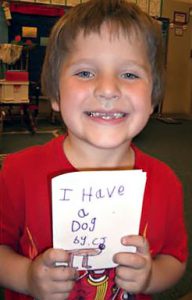 Teach concepts about print, high-frequency words, and reading — their way: Use auditory spelling strategies, name tickets, word matching, sentence building, singing, signing, "stamp and read books" and "kid writing." Create literacy play centers where children use reading and writing for real purposes. Skillfully transition from “magical memory reading” to guided reading. Use the Neurological Impress Method (NIM) to build fluent independent reading. Differentiate instruction for diverse learners.
Teach concepts about print, high-frequency words, and reading — their way: Use auditory spelling strategies, name tickets, word matching, sentence building, singing, signing, "stamp and read books" and "kid writing." Create literacy play centers where children use reading and writing for real purposes. Skillfully transition from “magical memory reading” to guided reading. Use the Neurological Impress Method (NIM) to build fluent independent reading. Differentiate instruction for diverse learners.
- Develop comprehension strategies and thinking skills with quality fiction and nonfiction and meaning-centered activities throughout the curriculum. Engage children in dialog and develop metacognition (thinking about our thinking).
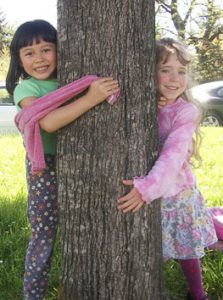
- Awaken children's love of nature: Connect children with the natural world outside the classroom. Create a classroom of stargazers, rock collectors, tree experts, and animal and plant enthusiasts. Use children's fascination with nature and their social connections to create a compelling reason to read and write.
- Honor the vital role of play in children's cognitive and social-emotional development. Put learning in the children's hands. Give children ownership, responsibility and choices in their learning. Make cooperative learning come alive through dramatic play, block building, group field trips and hands-on experiences. Challenge children to set high personal goals, empower them with "I can's." We are developing literacy —and life skills.
- Build voracious vocabulary learning habits explicitly, systematically, mindfully and playfully throughout the curriculum. Create a talking classroom. Reinforce basic language concepts and expand children's responses to who, what, where, when, how and why questions. Introduce powerful vocabulary through rich project learning and poetry. Watch children become collectors of wonderful new words.
And Teachers SMILE and Parents SMILE…
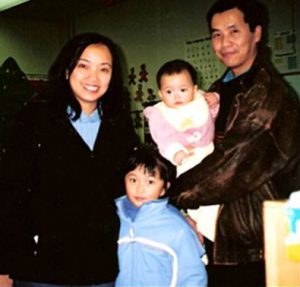 Teach in an emotionally engaging way and celebrate the educational arts as translators of meaning: Integrate music, drama, art, movement, dance and sign language (and love, joy, laughter, and enthusiasm) throughout the curriculum in everything you do. Bring your passions into the classroom. Love books, love learning, and love the children. They remember what we love. Children see a reflection of who they are and who they can become through our eyes.
Teach in an emotionally engaging way and celebrate the educational arts as translators of meaning: Integrate music, drama, art, movement, dance and sign language (and love, joy, laughter, and enthusiasm) throughout the curriculum in everything you do. Bring your passions into the classroom. Love books, love learning, and love the children. They remember what we love. Children see a reflection of who they are and who they can become through our eyes.
- Authentic assessment empowers children to take responsibility for their learning and pride in their accomplishments. Student-led parent conferences help children set personal goals, evaluate progress and celebrate their accomplishments. We build intrinsic motivation for children to do their best.
- Create a beautiful learning environment: Involve the children in creating an environment that is warm, comfortable and home-like. Create order and harmony and give children responsibilities for maintaining the environment. Classrooms need live plants, flowers, good lighting, art prints and photos of the children engaged in meaningful studies and playful explorations. Let the walls of your classroom reflect the lives of the children. Celebrate childhood and celebrate learning.
The S.M.I.L.E. approach to accelerated literacy is joyful, rigorous, and developmentally appropriate. We engage the heart and take advantage of how the young child’s brain learns best.
(Systematic [scaffolded], Meaningful [multisensory], and Integrated Literacy Experiences)
Think back to your earliest experiences in school. How were you taught in the best of your memories?
This symbol is for reflection: With our heart we know how to apply “best practices” research while we reach for the stars with the lives of our children.
Get our weekly blog for more high-impact strategies and free resources!




